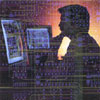Online auctions fertile ground for fraud
Source: The Times
By Joseph Pelliciotti
Date: May 26, 2003
 The Federal Trade Commission and state Attorney Generals across the country have launched a crackdown on Internet auction fraud that, according to the federal agency, has "bilked thousands of consumers out of their money and merchandise.
The Federal Trade Commission and state Attorney Generals across the country have launched a crackdown on Internet auction fraud that, according to the federal agency, has "bilked thousands of consumers out of their money and merchandise.
Most consumers have positive experiences with Internet auctions and most sites are run professionally and provide good opportunities for both buyers and sellers. Nevertheless, consumers should be careful.
According to the FTC, auction fraud is the largest category of Internet-related complaints in the agency's "Consumer Sentinel" database. In 2002, the database received more than 51,000 auction complaints.
Common problems regarding Internet auctions include sellers failing to send merchandise, sending lesser value items than advertised, failing to deliver on time, and failing to disclose all relevant information about items or the terms of sale.
Identity theft
In one example, the FTC alleges that individuals engaged in Internet auction fraud along with serial identity theft. The police initially thought the identity theft victims were behind the fraud. The FTC said individuals appears to have concealed their identities, diverting blame to those from whom they had stolen identities. Items were advertised and payment accepted with no intention of delivering the items, and accounts were set up in the identity theft victims' names with post office box addresses.
Bid siphoning
"Bid siphoning" can also occur. This happens when bidders lure consumers from legitimate auction sites by offering the "same items" at better prices. The intent is to trick consumers into paying for something they'll never receive.
Shill bidding
"Shill bidding" involves fraudulent sellers or people on their behalf bidding on items to drive up the price. "Bid shielding" includes fraudulent buyers submitting high bids to discourage other bidders from competing for items and then retracting the bids so they or people they know can get the items at lower prices.
Escrow fraud
Another potential type of fraud involves the use of escrows. Escrow services are designed to protect buyers and sellers. However, according to the FTC, sellers or buyers may fraudulently pose as escrow services to improperly obtain items or payment. A seller may put out items for sale and insist on the use of a particular escrow service.
"Once buyers provide the escrow service with their payment information, the escrow service doesn't hold the payment: the payment goes directly to the so-called seller." The item is never received. The scheme can work the other way, as well, with a buyer insisting on an escrow service. The service tricks the seller into sending the item and never sends payment on to the seller.
For more information
See the FTC's Web site at www.ftc.gov, specifically the April 30 release on Internet auction, for more information on the problem of Internet auction fraud, the actions taken by the FTC against alleged fraudulent parties, and links to additional government publications used in preparing the column.
Next column: Government agency tips on how to avoid becoming a victim of Internet auction fraud.
Joseph Pellicciotti is a lawyer, professor, and director of the Division of Public & Environmental Affairs and Political Science at Indiana University Northwest.
Original article: http://www.thetimesonline.com/articles/2003/05/26/
^macro[showdigestcomments;^uri[];Online auctions fertile ground for fraud]